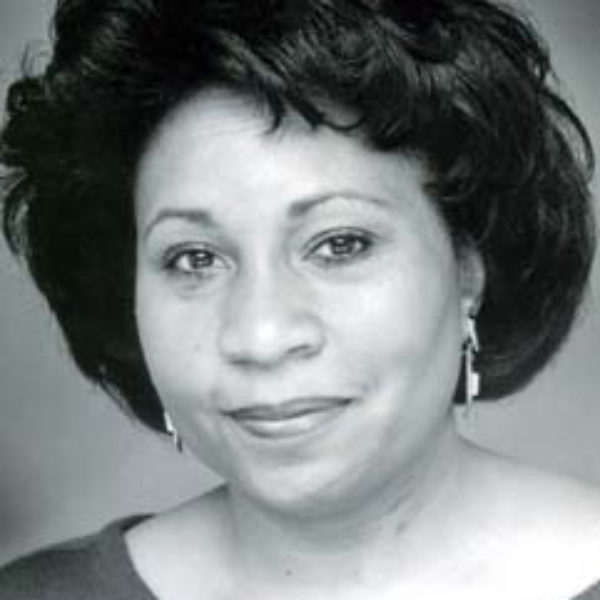Of Ships and Railroads: An Ode to Men and Daddies
I was puzzled about what drew me to the song. What was there about the lyrics compelling me to listen over and over again? Was it the mood or the tone causing me to examine every bar and line, much to my amazement?
There have been other songs that captivated me in the past, like “Ella’s Song” and “We Are,” and a long list of gospel pieces and symphonies written for the movies. Scores of classical African-American and European melodies, too numerous to name here, have been intoxicating. But why was the title song from Sting’s Broadway play, “The Last Ship Sails,” so alluring? Its cultural and historical context couldn’t be further from my own experience. No ocean front, no ship building, no row houses in my past. Yet, in a strange and unexpected way, the song stirs up memories of my daddy.
I suppose it was the song’s unmistakable masculinity that caught my attention. It is a tale of men’s work — hard, backbreaking work that went on from dawn to dusk — culminating with a new ship being ceremoniously launched out to sea. There was a time when thousands of men went off each day to work in the shipyards of Northern England. And similarly, in America, countless numbers of men filled their days working in railroad yards and stations, including most of the men in my family.
The Mask men (our family name) were railroad men, and despite the degradation they experienced because of the color of their skin, they were also fiercely proud of the work that they did to move the nation across millions of miles, coast to coast. I don’t know what role African-American men had in actually building the trains, but I know for certain that among the ranks of the railroad men were leaders who built and christened the Civil Rights movement that transformed the American political, economic, and social byways. So many of the organizers and leaders of the Civil Rights movement were railroad workers, demanding the rights promised to them as United States citizens.
My daddy and his brothers were tough, prideful men who worked hard to provide for their families, driven by their unrelenting belief that things would be better for their children than it had been for them. I am told that my uncle Joe, my daddy’s brother, was immaculately dressed for work each day. Starched and creased from head to toe — from his hat to his underwear — carrying a briefcase. He thought of himself as a professional railroad worker, tasked with making sure that everything ran smoothly. Henry Mask, my dad, less ornate, also left our home each day, with a purpose: to make certain that I could go as far as possible, farther than he could imagine.
Perhaps he had been gregarious in his younger years, but the father that I knew was quiet, a man of few words with an undeniable strength. He smoked half of a cigarette each day, and enjoyed sitting on the back patio that he had constructed. His hands were rock-hard from years of labor on the trains and elsewhere. There were times when he didn’t need a potholder to touch the handles of cast-iron pots; he just removed from the stove-top flame. The thick calluses on his hands resulted from the physical and emotional work of a lifetime, including protecting me.
He loved my mother, Fleda, for whom I was named. I suppose you might say that he had loved her for all of his life. They were barely teens, living in rural North Carolina, when he asked her to run off with him. She thought, “What would I do hoboing across the South?”
“No” was her answer to this offer from one of those “bad” Mask boys. She would marry another and have a daughter. He would marry, too, and become the father of four children.
But as fate would have it, the divorcee and the widower would meet again, and wed, even though, Fleda mused, her mother would roll over in her grave if she knew that her daughter had married one of those Mask boys. I became the child that they had, not by birth but through family and adoption.
Our special times together, I am told, began when I was a toddler, and my daddy took me to the garden on our three-acre lot, where he was growing strawberries and other vegetables and fruits. We returned to the house with evidence of the harvest all over my face and body; the berries were even lodged in my underwear. As a preschooler, I saw him cry when I had to move away for a short period. But when I returned, we picked up where we left off — him watching me and smiling, embracing me in his arms whenever I fell down, and always encouraging me.
As I grew older, our bond grew even deeper. The living that my daddy earned, and my mother’s wise use of what we had, made it possible for us to live a very comfortable life. Our home was immaculately decorated with fine antiques passed down through the family or purchased. Food was plentiful, and there was never a threat of being cold or in the dark. My daddy provided.
But with all that he did for us, there was one thing that he could not do for himself: my daddy could not read or write. So I became one of his corresponding secretaries, writing the letters that he dictated to me to family members far away. We finished each letter with him affixing an “X” for his signature and placing some money in the envelope.

Even though he couldn’t comprehend what lay before me, he still had dreams for my future. And so he made an investment. He made certain that everything was in order so that I could be educated at a private boarding school, attend Spelman College, and go on, as he told me, to “get all of the education that I could.”
But it wasn’t just my schooling that my daddy made a way for. He taught me how to stand up for myself with the assurance that I always had the support and love of family. While in high school, one summer, I took a job at a neighborhood grocery store. Daddy and I didn’t like the way that I was being treated, and thought something wasn’t quite right about the pay. “Come home,” he commanded me. “You don’t have to accept that.”
Since he was under the weather, Daddy wasn’t able to come to my college graduation, but he was among the witnesses when I walked down the aisle on my wedding day. He approved of my husband, and they became great friends. Duane, the love of my life, and daddy, the first man that I loved, exchanged the contours of their lives, generations apart. When Duane and I were in graduate school, it was Daddy who bought us our first car, in which we drove the miles from Illinois to Virginia at every opportunity to see how he was doing.
When he died, I was flooded with memories of the times we talked, our battles over the radio, with him turning the knob to country western music and my switching over to Motown sounds. He walked the neighborhood with an iron cane he made, while sporting a pocket watch with the inscription, “Teachers of Spanish.” I smiled when I found it among his things; he couldn’t read the words, but having it in his possession signaled a message about the proud man that he was.
During the summer of my junior year in high school, I spent time in France and Italy. When I returned, Daddy said to me with a broad smile, “So you went across the waters.”
“Yes, yes, Daddy, I did.” I didn’t take a ship to Europe, but, traveling from one country to another by rail, I couldn’t help but think about my dad.
I expect that the last ships have sailed from the once-bustling northern English shores, and that the railroads are not what they once were. But the memories and legacy of my daddy and all those hard working men live on.


Share your reflection